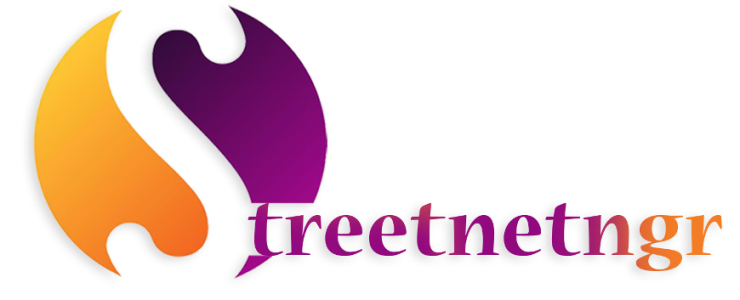In Makoko area of Yaba, Lagos State, dwellers shower and defecate on the water from which they drink. VICTOR OGUNYINKA, curious about the effect of this on their health, embarked on an investigative mission to the community and took various water samples from the community to the laboratory, and the results explain the danger which lack of potable water exposes Makoko people to in a community surrounded by water.
The United Nations Children Fund (UNICEF), article 24 on the convention on the right of children states that “Children have the right to the best health care possible, to safe drinking water, nutritious food, a clean and safe environment and the information to stay healthy.”
Somewhere in Lagos State, precisely in Makoko, Yaba, over 10,000 Nigerians, including children are living in a condition that negates this child right act.
 |
| Woman fetching water from one of the borehole channels in Makoko. PHOTO: VICTOR OGUNYINKA |
The first sight at the river bank of the community was that of a toddler, about three years old, squatting at the edge of a floating boat, defecating inside the lagoon.
It wasn’t long before I discovered that that was a way of life and common practice as another boy, not more than 10 years, was also using the water for convenience.
For more than five decades, the only life people living in a part of Makoko know is the life on water; they have managed to embrace, procreate, do their various businesses on the lagoon water, which is less than one kilometre from the Third Mainland Bridge, Lagos.
 |
| Chemical analysis on the water samples from Makoko being carried out at the Cheistry Laboratory, Lead City University, Ibadan |
One cannot talk about the story of Makoko water community without mentioning the popular
 |
| A Laboratory Technologist observing the water samples under the microscope at the Microbiology Laboratory, Lead City University, Ibadan. |
Read the whole story on tribuneonlineng.com

[url=https://bmtadalafil.online/]tadalafil online in india[/url]
[url=https://asynthroid.com/]buy synthroid canada[/url]
[url=https://bestmedsx.com/]rx pharmacy no prescription[/url]
[url=https://lisinoprill.com/]zestril price[/url]
Greate pieces. Keep writing such kind of information on your blog.
Im really impressed by it.
Hey there, You have performed an incredible job. I will certainly digg it and in my view recommend to
my friends. I am sure they’ll be benefited from this site.
Наша группа профессиональных исполнителей находится в готовности предложить вам новаторские технологии, которые не только обеспечат долговечную протекцию от прохлады, но и подарят вашему жилищу оригинальный вид.
Мы практикуем с самыми современными средствами, сертифицируя долгий время службы и отличные эффекты. Теплоизоляция наружных стен – это не только экономия на прогреве, но и трепет о природной среде. Сберегательные инновации, какие мы претворяем в жизнь, способствуют не только вашему, но и сохранению природных богатств.
Самое важное: [url=https://ppu-prof.ru/]Утепление фасада дома под ключ цена[/url] у нас открывается всего от 1250 рублей за квадратный метр! Это бюджетное решение, которое переделает ваш домашний уголок в реальный приятный уголок с минимальными тратами.
Наши примеры – это не только изоляция, это составление поля, в где все деталь выражает ваш особенный моду. Мы примем все твои желания, чтобы осуществить ваш дом еще еще более удобным и привлекательным.
Подробнее на [url=https://ppu-prof.ru/]интернет-ресурсе[/url]
Не откладывайте труды о своем помещении на потом! Обращайтесь к специалистам, и мы сделаем ваш дом не только теплее, но и модернизированным. Заинтересовались? Подробнее о наших проектах вы можете узнать на сайте компании. Добро пожаловать в пространство удобства и уровня.
Good day! This is kind of off topic but I need some help
from an established blog. Is it very hard to set up your own blog?
I’m not very techincal but I can figure things out pretty fast.
I’m thinking about setting up my own but I’m not sure where to start.
Do you have any ideas or suggestions? Thank you
I am really enjoying the theme/design of your site. Do you ever run into any browser compatibility issues?
A handful of my blog readers have complained about my site not working correctly in Explorer but looks great in Firefox.
Do you have any tips to help fix this issue?
[url=https://medicinesaf.online/]reliable canadian online pharmacy[/url]
[url=http://tadalafilstd.online/]tadalafil 80mg[/url]
[url=http://ozempictabs.com/]semaglutide medication[/url]
[url=http://rybelsussemaglutide.com/]buy semaglutide online cheap[/url]
Наша группа профессиональных исполнителей проштудирована выдвинуть вам перспективные системы, которые не только подарят надежную защиту от холодных воздействий, но и подарят вашему дому трендовый вид.
Мы практикуем с самыми современными строительными материалами, подтверждая постоянный время работы и выдающиеся итоги. Изолирование внешней обшивки – это не только экономия тепла на прогреве, но и забота о экосистеме. Энергосберегающие технологические решения, какие мы внедряем, способствуют не только твоему, но и поддержанию природных ресурсов.
Самое главное: [url=https://ppu-prof.ru/]Утепление фасадов стоимость работ цена[/url] у нас стартует всего от 1250 рублей за метр квадратный! Это бюджетное решение, которое переделает ваш дом в реальный душевный местечко с минимальными затратами.
Наши проекты – это не только утепление, это образование области, в где каждый элемент отразит ваш персональный манеру. Мы возьмем во внимание все ваши просьбы, чтобы осуществить ваш дом еще более комфортным и привлекательным.
Подробнее на [url=https://ppu-prof.ru/]ppu-prof.ru/[/url]
Не откладывайте занятия о своем корпусе на потом! Обращайтесь к профессионалам, и мы сделаем ваш корпус не только комфортнее, но и изысканнее. Заинтересовались? Подробнее о наших услугах вы можете узнать на веб-сайте. Добро пожаловать в сферу спокойствия и уровня.
[url=http://robaxin.cyou/]robaxin otc usa[/url]
[url=https://lisinopril.cfd/]zestril no prescription[/url]
[url=http://albuterol.cyou/]albuterol canada[/url]
[url=http://onlinepharmacy.cyou/]cheapest pharmacy[/url]
[url=http://diflucan.cyou/]diflucan 2 pills[/url]
[url=http://citalopram.cyou/]celexa coupon[/url]
[url=https://budesonide.cyou/]over the counter budesonide[/url]
[url=https://fildena.cfd/]fildena online[/url]
This is serious